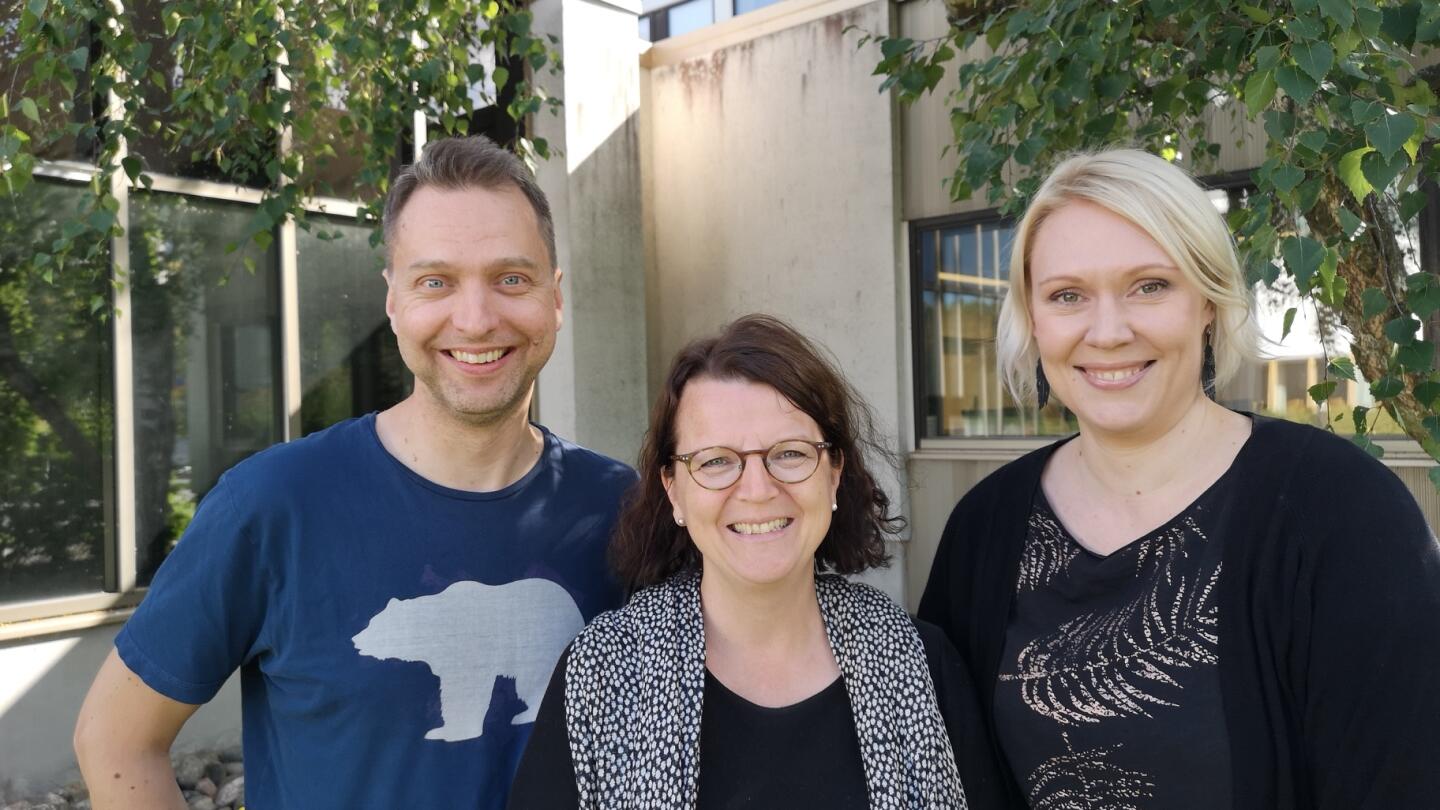New perspectives on career matters after the dissertation

Postdoctoral Researchers Tommi Pukkinen and Katri Suvanto-Luomala
Department of Management and Entrepreneurship at Turku School of Economics
Senior Consultant Sari-Anne Poikkijoki
Åma Oy
We wanted to take part in mentoring because we wanted new perspectives on career matters after the dissertation. We had worked for a long time in the same unit and both of us had our dissertation defences in 2018. We had heard that you could apply to mentoring as a pair, since there often are more mentees than mentors. On the one hand, we wanted views on opportunities outside the university, and on the other hand, also that the mentor would understand the academia. We knew Sari-Anne from a few years back when she still worked at the Turku School of Economics and knew that she has a lot of experience in the corporate world and career counselling. Sari-Anne is also experienced in the mentoring programme of the University of Turku, and it was easy for her to hop back in on ex-colleagues’ request.
During mentoring, we have discussed, among other things, our life cycle and different stages of our careers, the job market, career-related strategies, applying for a job, networks, LinkedIn, our goals, skills, strengths, weaknesses, and individual characteristics. Some of the topics were agreed on beforehand, and some have come up spontaneously during meetings. We have had meetings about once a month. Locations have varied from rooms at the university to SparkUp and a cafeteria. Sometimes our discussions have filled a flip chart in no time, other times we have digressed and our thoughts and the conversation have wandered onto what has been going on with us career-wise and what the future has in store for us.
Already during the first meeting, we discussed the goals. Because our situations were different in the beginning of the mentoring, so were the goals to some extent. Katri had already left the researcher’s career behind and was focusing on the job market outside the university, so her aim was to discover new career paths. Tommi, on the other hand, was trying to rediscover his enthusiasm for work and courage as a researcher after a long dissertation process. As an overarching element, we spent a lot of time discussing what type of work we would like to do in the future and what kind of paths we could create on our way there.
Mentoring has been an amazing experience. We have enjoyed varied, unexpected, and pleasant meetings together and got new perspective as well as concrete tools for our work. To discuss your career and work situation with the focus on yourself has been the best. The biggest strength in attending mentoring as a pair is that you have been able to share experiences and how you feel with someone who is in the same stage in their career and to have been able to reflect on the “double coaching” you get from an experienced mentor. In part, mentoring was a kind of career therapy for post-dissertation “hangover” where you transition from a long-term process to tackle new projects and tasks. For the mentor, the mentoring process has been a wonderful opportunity to develop your own career counselling expertise and to talk about the super important matters with knowledgeable people: humanity, professionality, career, life.